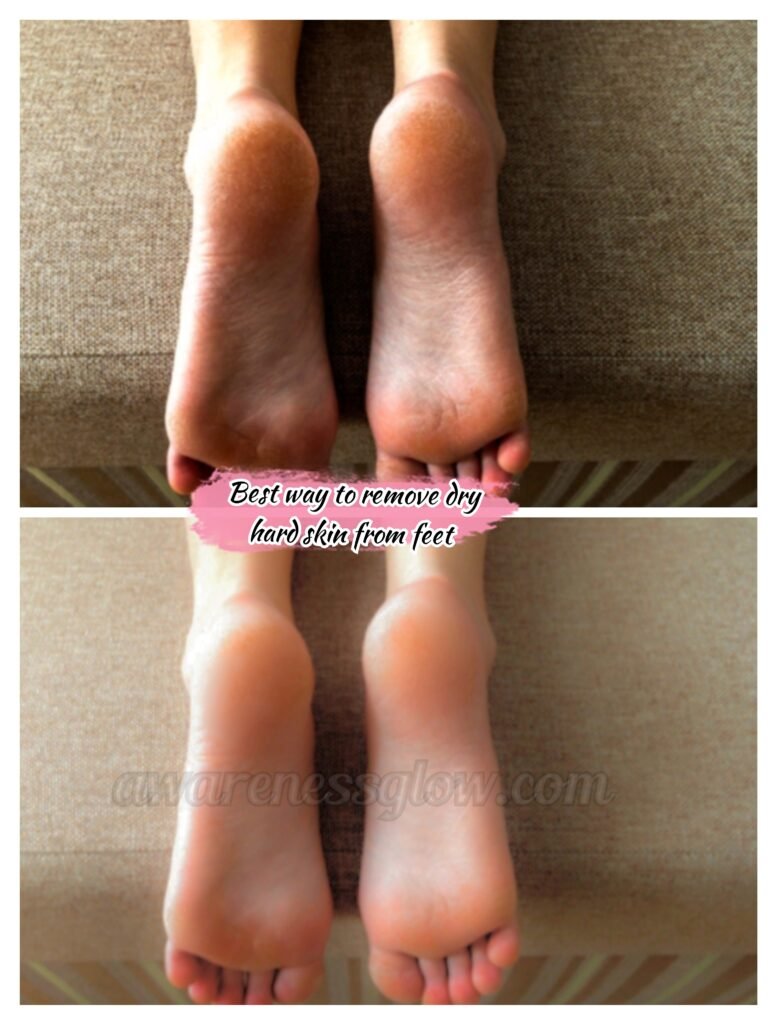
Best Way To Remove Dry Hard Skin From Feet
Introduction;
A common problem that might cause discomfort and even pain if neglected is dry, hard skin on the feet. Maintaining soft, smooth feet and avoiding problems, including cracks or infections, depend on regular foot care. Whether brought on by environmental elements, dehydration, or friction, suitable treatments can help your feet become soft once more. This guide will go over the best techniques for getting dry, hard skin off your feet so they remain healthy and revitalized.
How best should hard skin on feet be treated?
- Choose shoes that fit you and provide enough support. Avoid high heels and shoes that pinch, as these might create friction and pressure, resulting in calluses.
- For extreme hydration, foot masks or overnight treatments are fantastic. Before bed, put on the mask, cover your feet with socks, and let it work overnight.
- Incorporate a foot care regimen into your daily schedule, including occasional exfoliating and moisturizing.
How can you get quite challenging skin on your feet?
- Coconut oil is a remarkably effective natural choice. Apply it before bed, covering your feet with socks to let the oil penetrate.
- Make foot care a weekly habit: Consistent soaking, exfoliating, and moisturizing will keep your feet soft and smooth.
Is foot-hard skin either good or bad?
Hard skin, sometimes called calluses, results from repeated pressure or friction on the skin of the feet. Wearing tight or ill-fitting shoes, walking barefoot on hard surfaces, or participating in sports that strain-specific areas of the feet—like running or dancing—can all cause this. The body produces tougher skin to guard against blisters and other injuries.
See a podiatrist for especially tough or painful calluses or if you have diabetes or another medical condition that compromises your feet. They can gently remove the tough skin and offer tips on how to stop it from resurfacing.
Does foot-hard skin regenerate?
- Indeed, hard skin on the feet can develop back up once removed. This is so because the causes of hard skin—such as friction, pressure, and dryness—are often continuous. The skin will keep thickening as a defense mechanism if these elements are not addressed.
- Creams on the over-the-counter market contain urea or salicylic acid, which, over time, helps soften tough skin.
- Frequent foot moisturizing helps prevent the skin from drying and hardening. Use a decent foot cream daily, paying particular attention to dry-prone areas.
Professional Care: See a podiatrist for expert treatment if your hard skin is severe or painful. They can safely remove the thickened skin and offer guidance on avoiding its comeback.
How can I stop my feet from developing back hard skin?
- After a shower or bath, gently exfoliate the tough skin with a foot file or pumice stone when your skin is soft. This helps to clear dead skin cells and stop callus development.
Change Shoes Often: Daily wear of the same shoes can lead to pressure point development. Rotate your shoes to give your feet some rest and lower the calluses’ formation probability.
- Extra weight puts more strain on your feet and helps produce hard skin. Maintaining a good weight will help lower this pressure and stop calluses.
Avoiding hard skin on your feet calls for regular attention to detail. These pointers will help you maintain healthy, soft, and smooth feet by being included in your daily life. Recall that seeing a healthcare provider is always advisable if you have recurring or painful calluses. A good life starts with good feet; thus, spend some time correctly caring for them.
